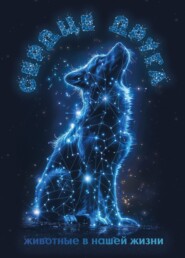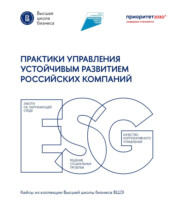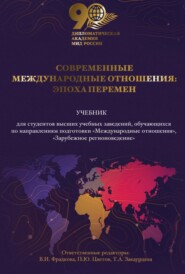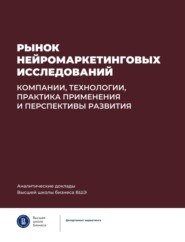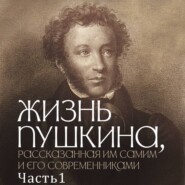По всем вопросам обращайтесь на: info@litportal.ru
(©) 2003-2024.
✖
«Однажды ночью я увидел вечность…» Английские стихотворения XVI–XVII веков / I saw Eternity the other night…
Настройки чтения
Размер шрифта
Высота строк
Поля
First, lullaby, my youthful years,
It is now time to go to bed,
For crooked age and hoary hairs
Have won the haven within my head.
With lullaby then, youth, be still,
With lullaby content thy will,
Since courage quails and comes behind,
Go sleep, and so beguile thy mind.
Next, lullaby my gazing eyes,
Which wonted were to glance apace.
For every glass may now suffice
To show the furrows in my face.
With lullaby then wink awhile,
With lullaby your looks beguile.
Let no fair face nor beauty bright
Entice you eft with vain delight.
And lullaby, my wanton will;
Let reason’s rule now reign thy thought,
Since all too late I find by skill
How dear I have thy fancies bought.
With lullaby now take thine ease,
With lullaby thy doubts appease.
For trust to this: if thou be still,
My body shall obey thy will.
Eke lullaby, my loving boy,
My little Robin, take thy rest.
Since age is cold and nothing coy,
Keep close thy coin, for so is best.
With lullaby be thou content,
With lullaby thy lusts relent.
Let others pay which hath mo pence;
Thou art too poor for such expense.
Thus, lullaby, my youth, mine eyes,
My will, my ware, and all that was.
I can no mo delays devise,
But welcome pain, let pleasure pass.
With lullaby now take your leave,
With lullaby your dreams deceive.
And when you rise with waking eye,
Remember Gascoigne’s lullaby.
Sir Edward Dyer[13 - Эдвард Дайер.]
(1543–1607)
A Modest Love
(Стыдливая[14 - Modest ['mɔdɪst] – скромный, сдержанный; застенчивый.] любовь)
The lowest trees have tops (у самых низких деревьев есть верхушки), the ant her gall (у муравья – его: «ее» дерзость; gall [ɡɔ:l] – желчь; желчность; дерзость, наглость),
The fly her spleen (у мухи – ее злоба; spleen [spli:n] – селезенка; злоба, недоброжелательность; сплин, хандра), the little sparks their heat (у маленьких искр – их жар);
The slender hairs cast shadows, though but small (тонкие волосы отбрасывают тени, хотя лишь небольшие),
And bees have stings, although they be not great (а у пчел есть жала, хотя они и не велики);
Seas have their source, and so have shallow springs (у морей есть исток, равно как у мелких ручьев);
And love is love, in beggars as in kings (а любовь есть любовь – в нищих и в королях).
Where rivers smoothest run, deep are the fords (там, где реки текут наиболее плавно/спокойно, глубоки броды; smooth [smu:ð] – гладкий, ровный; плавный, спокойный; to run – бежать; течь);
The dial stirs, yet none perceives it move (солнечные часы не стоят на месте: «шевелятся», однако никто не замечает, как они движутся: «их двигаться»; dial ['daɪəl] – циферблат; /= sundial/ солнечные часы; to stir [stɜ:] – шевелиться; двигаться; to perceive [pə'si:v] – воспринимать; ощущать, различать, чувствовать);
The firmest faith is in the fewest words (самая крепкая вера – в очень немногих словах: «в наименьшем количестве слов»; faith [feɪθ] – вера, доверие; обещание, данное слово);
The turtles cannot sing, and yet they love (горлицы[15 - Горлица – непоющая птица (только гулит: «турр-турр»), считалась образцом верности в любви (так как предполагалось, что она находит себе пару на всю жизнь).] не могут петь, и однако они любят; turtle ['tɜ:tl] – черепаха; /уст./ = turtledove ['tɜ:tldʌv] – горлица; возлюбленный; любимый):
True hearts have eyes and ears, no tongues to speak (у верных сердец есть глаза и уши, /но/ нет языков, чтобы говорить; tongue [tʌŋ] – язык);
They hear and see, and sigh, and then they break (они слышат и видят, и вздыхают, а затем они разбиваются; to break [breɪk] – ломать/ся/, разбивать/ся/).
The lowest trees have tops, the ant her gall,
The fly her spleen, the little sparks their heat;
The slender hairs cast shadows, though but small,
And bees have stings, although they be not great;
Seas have their source, and so have shallow springs;
And love is love, in beggars as in kings.
Where rivers smoothest run, deep are the fords;
The dial stirs, yet none perceives it move;
The firmest faith is in the fewest words;
The turtles cannot sing, and yet they love:
True hearts have eyes and ears, no tongues to speak;
They hear and see, and sigh, and then they break.
Sir Walter Ralegh[16 - Уолтер Рали.]
(1552–1618)
«What is our life? The play of passion…»
What is our life (что есть наша жизнь)? The play of passion (игра страсти; passion ['pæʃ(ə)n] – страсть, страстное увлечение),
Our mirth the music of division (наша веселость – музыка антракта/интермедии = музыкальные интермедии; mirth [mɜ:θ]– веселье, радость, увеселение; division [dɪ'vɪʒ(ə)n] – деление, разделение; часть, раздел).
It is now time to go to bed,
For crooked age and hoary hairs
Have won the haven within my head.
With lullaby then, youth, be still,
With lullaby content thy will,
Since courage quails and comes behind,
Go sleep, and so beguile thy mind.
Next, lullaby my gazing eyes,
Which wonted were to glance apace.
For every glass may now suffice
To show the furrows in my face.
With lullaby then wink awhile,
With lullaby your looks beguile.
Let no fair face nor beauty bright
Entice you eft with vain delight.
And lullaby, my wanton will;
Let reason’s rule now reign thy thought,
Since all too late I find by skill
How dear I have thy fancies bought.
With lullaby now take thine ease,
With lullaby thy doubts appease.
For trust to this: if thou be still,
My body shall obey thy will.
Eke lullaby, my loving boy,
My little Robin, take thy rest.
Since age is cold and nothing coy,
Keep close thy coin, for so is best.
With lullaby be thou content,
With lullaby thy lusts relent.
Let others pay which hath mo pence;
Thou art too poor for such expense.
Thus, lullaby, my youth, mine eyes,
My will, my ware, and all that was.
I can no mo delays devise,
But welcome pain, let pleasure pass.
With lullaby now take your leave,
With lullaby your dreams deceive.
And when you rise with waking eye,
Remember Gascoigne’s lullaby.
Sir Edward Dyer[13 - Эдвард Дайер.]
(1543–1607)
A Modest Love
(Стыдливая[14 - Modest ['mɔdɪst] – скромный, сдержанный; застенчивый.] любовь)
The lowest trees have tops (у самых низких деревьев есть верхушки), the ant her gall (у муравья – его: «ее» дерзость; gall [ɡɔ:l] – желчь; желчность; дерзость, наглость),
The fly her spleen (у мухи – ее злоба; spleen [spli:n] – селезенка; злоба, недоброжелательность; сплин, хандра), the little sparks their heat (у маленьких искр – их жар);
The slender hairs cast shadows, though but small (тонкие волосы отбрасывают тени, хотя лишь небольшие),
And bees have stings, although they be not great (а у пчел есть жала, хотя они и не велики);
Seas have their source, and so have shallow springs (у морей есть исток, равно как у мелких ручьев);
And love is love, in beggars as in kings (а любовь есть любовь – в нищих и в королях).
Where rivers smoothest run, deep are the fords (там, где реки текут наиболее плавно/спокойно, глубоки броды; smooth [smu:ð] – гладкий, ровный; плавный, спокойный; to run – бежать; течь);
The dial stirs, yet none perceives it move (солнечные часы не стоят на месте: «шевелятся», однако никто не замечает, как они движутся: «их двигаться»; dial ['daɪəl] – циферблат; /= sundial/ солнечные часы; to stir [stɜ:] – шевелиться; двигаться; to perceive [pə'si:v] – воспринимать; ощущать, различать, чувствовать);
The firmest faith is in the fewest words (самая крепкая вера – в очень немногих словах: «в наименьшем количестве слов»; faith [feɪθ] – вера, доверие; обещание, данное слово);
The turtles cannot sing, and yet they love (горлицы[15 - Горлица – непоющая птица (только гулит: «турр-турр»), считалась образцом верности в любви (так как предполагалось, что она находит себе пару на всю жизнь).] не могут петь, и однако они любят; turtle ['tɜ:tl] – черепаха; /уст./ = turtledove ['tɜ:tldʌv] – горлица; возлюбленный; любимый):
True hearts have eyes and ears, no tongues to speak (у верных сердец есть глаза и уши, /но/ нет языков, чтобы говорить; tongue [tʌŋ] – язык);
They hear and see, and sigh, and then they break (они слышат и видят, и вздыхают, а затем они разбиваются; to break [breɪk] – ломать/ся/, разбивать/ся/).
The lowest trees have tops, the ant her gall,
The fly her spleen, the little sparks their heat;
The slender hairs cast shadows, though but small,
And bees have stings, although they be not great;
Seas have their source, and so have shallow springs;
And love is love, in beggars as in kings.
Where rivers smoothest run, deep are the fords;
The dial stirs, yet none perceives it move;
The firmest faith is in the fewest words;
The turtles cannot sing, and yet they love:
True hearts have eyes and ears, no tongues to speak;
They hear and see, and sigh, and then they break.
Sir Walter Ralegh[16 - Уолтер Рали.]
(1552–1618)
«What is our life? The play of passion…»
What is our life (что есть наша жизнь)? The play of passion (игра страсти; passion ['pæʃ(ə)n] – страсть, страстное увлечение),
Our mirth the music of division (наша веселость – музыка антракта/интермедии = музыкальные интермедии; mirth [mɜ:θ]– веселье, радость, увеселение; division [dɪ'vɪʒ(ə)n] – деление, разделение; часть, раздел).






